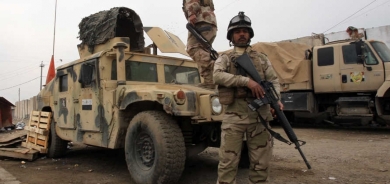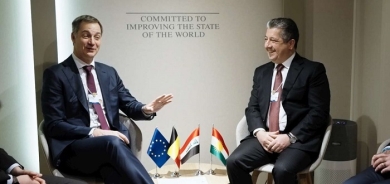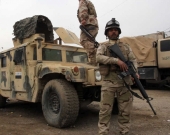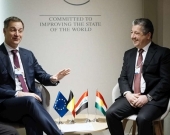Iraqi Parliament Session Suspended Amid Tensions Over Kirkuk Land Dispute Bill

The Iraqi parliament adjourned its session on Tuesday after rising tensions between Kurdish and Sunni lawmakers over a proposed bill to resolve long-standing land disputes in the disputed province of Kirkuk. The proposed legislation seeks to return lands confiscated under the Baath regime to their original Kurdish and Turkmen owners, according to lawmakers.
The bill, which has passed its first and second readings, was set for a vote last month but was removed from the agenda, prompting Kurdish parties to boycott the parliament in protest. Kurdish lawmaker Dara Sekaniani, a member of the legislature’s legal committee, told Rudaw that Sunni representatives are blocking the voting process, leaving Kurdish and Turkmen lawmakers frustrated.
"The bill has been placed on the agenda multiple times, but each session has been disrupted due to Sunni protests," said Sekaniani. He explained that the legal committee amended the bill to include additional disputed areas beyond Kirkuk, such as Nineveh Plains, Makhmour, and Dujail, to broaden the scope of land return.
The legislation aims to address the forced displacement of Kurds and Turkmen under Iraq’s former Baathist regime, which seized agricultural land under the pretext of national security in oil-rich areas, transferring ownership to resettled Arab families. In 2023, the Iraqi Council of Ministers unanimously approved a draft law to reverse Baath-era rulings that expropriated Kurdish and Turkmen land in Kirkuk, but an additional law is required to fully restore the land to its original owners.
Tensions escalated further when Sunni MPs exited the parliament hall in protest of the proposed amendments, only to return and disrupt the session. According to MP Srwa Mohammed, the Sunni lawmakers favor a vote on the initial government draft, which nullifies eight Baathist-era decrees, while Kurdish lawmakers insist on voting with the legal committee’s expanded amendments, which would nullify 18 decrees.
The issue of land disputes in Kirkuk and surrounding regions remains highly contentious in Iraq. Since the fall of the Baath regime in 2003, the Iraqi government has implemented a de-Arabization policy under Article 140 of the constitution, aiming to reverse demographic changes imposed by Saddam Hussein’s regime. Yet, the recent legislative standstill underscores the ongoing challenges in reconciling the multi-ethnic claims in these territories.














